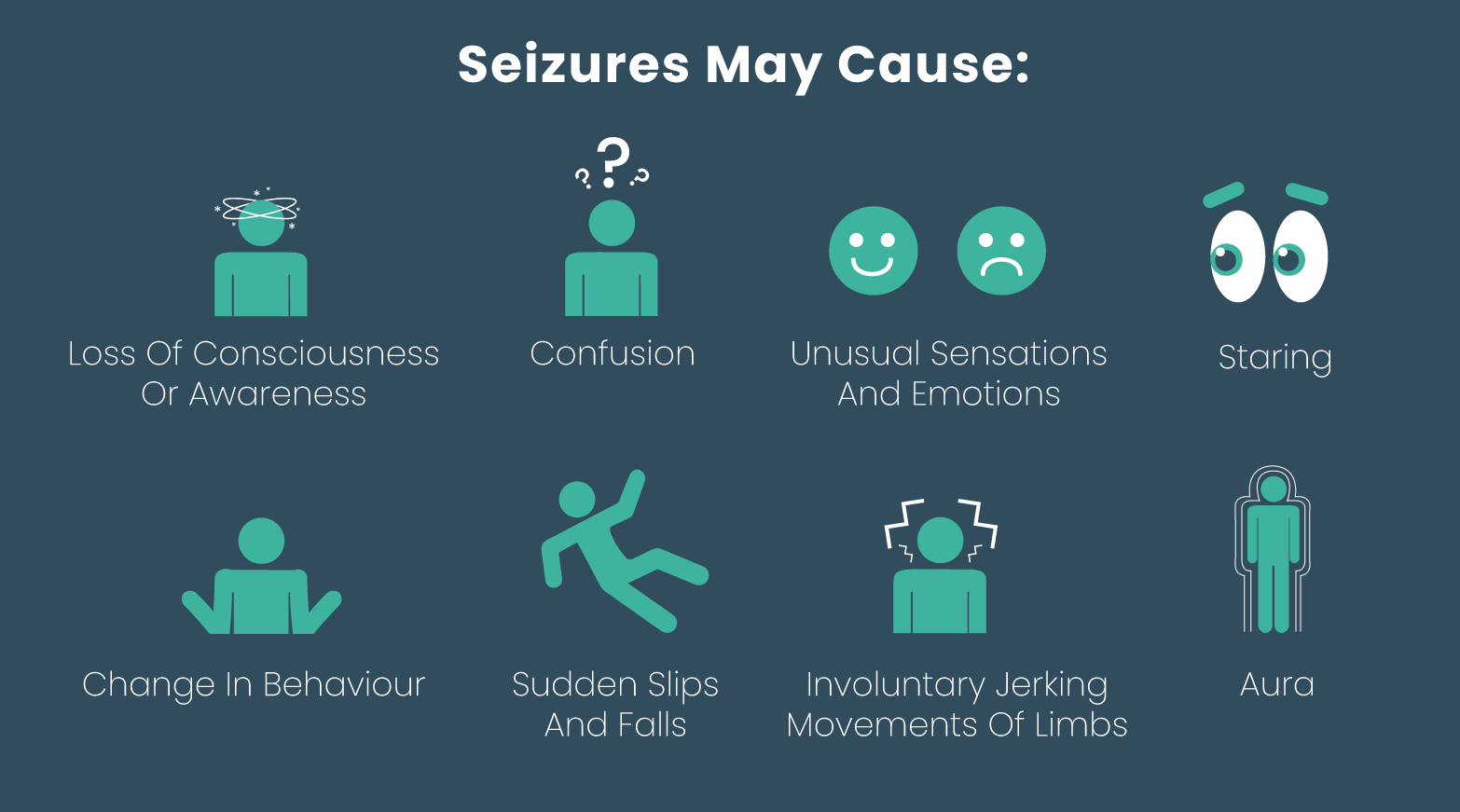

Medical IDs for Seizure Disorder
A medical ID bracelet or necklace is highly recommended for those living with any type of seizure disorder. During a seizure, an excessive surge in the brain's electrical activity results in temporary brain dysfunction. The symptoms experienced during a seizure can commonly be confused with epilepsy, but it’s important to note that not all seizures are epileptic in nature.
According to the American Academe of Neurology, about 150,000 adults have an unprovoked first seizure in the United States each year.
"Even one seizure is traumatic and affects a person’s life in many social ways, such as driving a car, employment options, falling risks and the fear of having another seizure in public." - Allan Krumholz, MD


Types of Seizures
There are about 30 different types of seizures. The most common types are:
|
|
According to Epilepsy Michigan, it's important for patients to know what type of seizure they are experiencing. Without proper identification, there is a risk of misunderstanding or receiving incorrect treatment.
Wearing a medical ID bracelet or necklace can effectively alert doctors, nurses, responders, and other health professionals of seizure disorder or the risk of having a seizure.
Seizures and Medical IDs in Emergency
In a seizure emergency, responders need to identify the cause and type of a patient's seizure, their seizure history, and if they are under medications like anticonvulsants, Gabapentin, or Tegretol. A medical ID can hold important seizure information and make sure that it is always available when and where a patient needs it.
Seizures can be scary for patients, family members, or anyone who are on hand during a seizure. A medical ID can tell others what to do in an emergency. Mount Sinai Health System recommends to "Wear a medical alert bracelet. Tell family, friends, and the people you work with about your seizure disorder."
“Wear a medical alert bracelet. This will help emergency personnel know how to treat you correctly if you have another seizure.” - Mayo Clinic
What to Engrave on a Seizure Disorder Medical ID
Medical identification jewelry for seizure disorders holds all critical seizure information in one place. Custom engraving ensures that a medical ID is accurate and reflects a patient's most updated and precise health information.


Here are some of the most important items to put on a seizure disorder medical ID:
- Name
- Seizure - include the type of seizure and other medical conditions, related or not, such as epilepsy or diabetes.
- Seizure medications - anti-seizure medications produce side-effects and dangerous drug interactions must be avoided.
- In case of emergency contacts - or a prompt to call 911
An emergency wallet card can hold more information on seziure disorder and complement engraving on a medical ID.



 - UK
- UK  - Canada
- Canada  - Australia
- Australia 